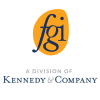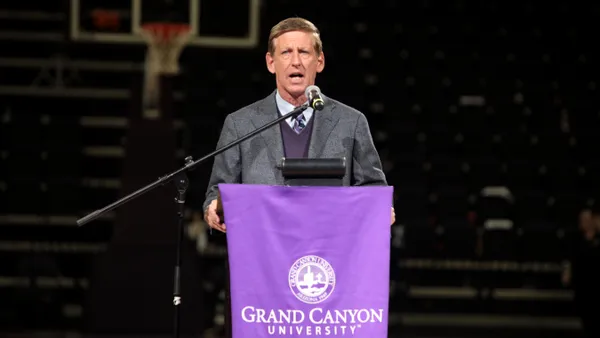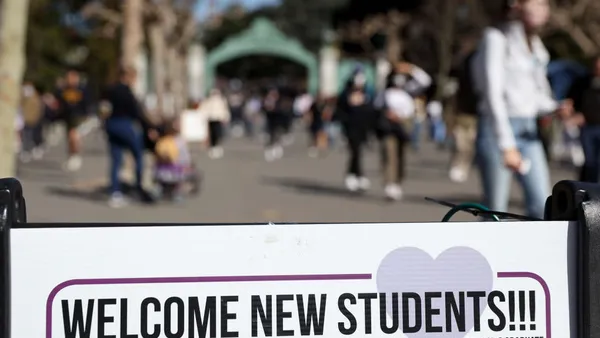Dive Brief:
- Generation Z students approach graduate programs differently than their generational predecessors, and colleges need to specialize their recruitment tactics to engage them, according to a new survey from LaneTerralever, a marketing firm specializing in higher education.
- Members of Gen Z, who are 25 and younger, indicate they chose a college quickly, with 47% saying the process took 3 months or less. That's compared to 35% of those surveyed across generational lines.
- Some 41% of Gen Z said they are primarily motivated to return to college for career advancement. Only 22% said their top priority was raising their earning potential, the lowest of all generations surveyed.
Dive Insight:
While undergraduate enrollment declined 6.6% from fall 2019 to fall 2021, graduate program enrollment rose 3.2% over the same period, according to National Student Clearinghouse Research Center data. Programs like medicine, law and business saw an uptick in popularity, according to the LaneTerralever survey.
The survey found 49% of people across generations had an increased interest in pursuing grad school as a result of the pandemic. But Gen Z's priorities differ, both in what and how they want to study.
Of 920 survey respondents who considered enrolling in a post-graduate program in the past 18 months, 80% preferred either an all-online courseload or a mixed model of instruction.
Gen Z responses tell a different story.
About 45% of Gen Z still want in-person instruction full time, compared to 11% of millennials, those aged 26 to 40, and 12% of Gen X, those aged 41 to 55. Gen Z is likely motivated to be in the classroom after spending their most recent education experiences remotely, according to Lauren Hillery, vice president of brand strategy at LaneTerralever.
"Gen Z has a bit of a sour taste in their mouth from that unexpected loss," Hillery said. "They might want some of those more traditional experiences that they missed out on, either in undergrad or in high school."
Programs in medicine and health, business, and the social and behavioral sciences were the most popular among Gen Z respondents, in that order. Business ranked the top choice for both millennial and Gen X respondents. Medical and health programs didn't make Gen X's top three.
Gen Z's increased interest in the health sciences shouldn't come as a surprise, said Nick Dan-Bergman, director of marketing at LaneTerralever.
"They just went through a global pandemic during a big transitional point in their lives," Dan-Bergman said. "It makes sense that it impacted them in a way that could shape their career path."
Only about one-third of American employees report feeling engaged at work, according to Gallup research. This lack of employee buy-in leaves room for professional change, according to Dan-Bergman.
Prospective students overall expected promptness from their potential educators. More than 60% expect an academic institution to respond to an inquiry the same day. Only 64% of students say colleges' communications have met their expectations.
Creating more ways for Gen Z members to compare programs and costs themselves will help hold their attention, according to Hillery.
"They want to come to the table informed, with information they found," Hillery said. "They want to meet an enrollment adviser armed with questions, rather than just passively receiving information and crossing their fingers."














